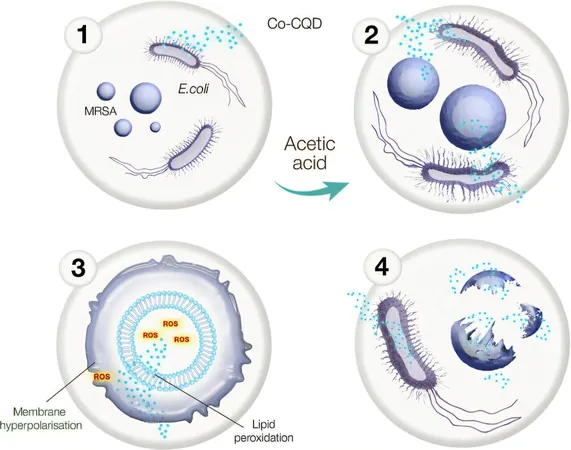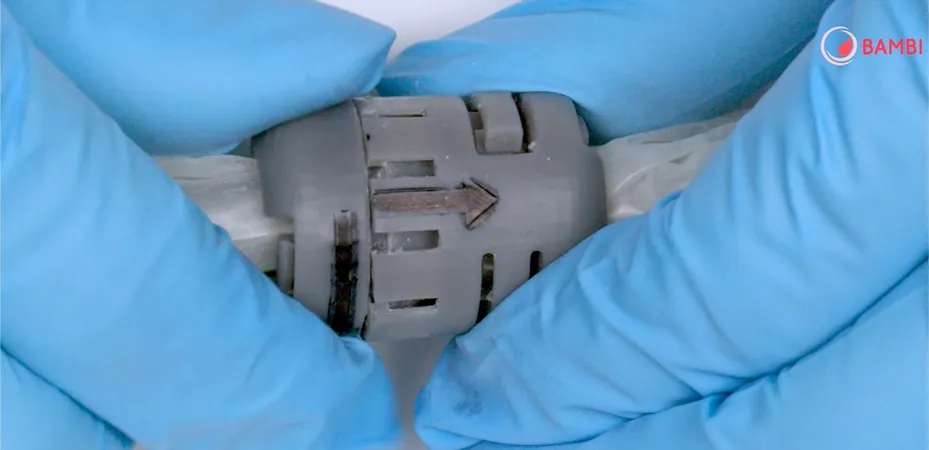
AI: The Game Changer in the Battle Against Cancer and Diabetes
2025-09-19
Author: Mei
Artificial Intelligence Takes Center Stage in Healthcare
Artificial intelligence (AI) is transforming the landscapes of cancer and Type 1 diabetes research, unlocking new possibilities for detection, treatment, and patient care. This cutting-edge technology is not just a buzzword—it's reshaping biomedical research and therapeutic approaches, making them faster and more accurate than ever before.
The Growing Challenge of Cancer and Diabetes
As of 2022, nearly 20 million people were diagnosed with cancer, and an astonishing 9.7 million lives were lost to this devastating disease. Projections indicate that by 2050, the number of new cancer cases could soar to over 35 million, thanks to an aging population and lifestyle factors such as smoking, obesity, and alcohol consumption. Simultaneously, Type 1 diabetes is on the rise, with estimates suggesting that about 9.5 million individuals globally will live with this condition by 2025.
The Immune System: A Double-Edged Sword
Both conditions stem from complex immune system issues: in cancer, the immune response falters, allowing tumors to thrive, while in Type 1 diabetes, the immune system mistakenly targets insulin-producing cells. This fascinating dichotomy, first noted by Nobel laureate Peter Medawar, highlights that both diseases stem from imbalances in the immune system.
AI Speeds Up Drug Discovery and Target Identification
AI is revolutionizing the discovery of new drugs and therapeutic targets in cancer immunology. Traditionally a lengthy process, AI accelerates the identification of tumor antigens and immune checkpoints by analyzing vast datasets—from genetic sequences to immune cell profiles. This technology allows researchers to uncover critical insights, revealing how cancer cells avoid being detected by the immune system.
Real-World Impact: Partnerships and Innovations
Pharmaceutical companies are leveraging AI in groundbreaking ways. For example, AstraZeneca's collaboration with Immunai utilizes AI-driven immune modeling to identify biomarkers and inform drug dosing in oncology trials. These advanced platforms enable more accurate predictions of essential tumor-immune interactions, paving the way for highly personalized immunotherapies.
Optimizing Immunotherapy with AI Insights
A significant challenge in cancer treatment is predicting which patients will benefit from therapies like checkpoint inhibitors. AI helps by analyzing complex data, including medical imaging and genomic sequencing, to identify predictors of patient response. Deep learning models can effectively forecast treatment efficacy by assessing tumor mutations and immune cell presence.
Personalized Medicine: The Path Forward
AI not only predicts responses but also enhances treatment design and delivery. By combining genomic and proteomic information, AI can simulate tumor-immune interactions to create effective treatment strategies. Recent advancements classify tumors into 'hot' and 'cold' categories, allowing for tailored therapies that maximize effectiveness while minimizing risks.
Revolutionizing Vaccine Development
Personalized cancer vaccines are emerging as an exciting application of AI technology. These vaccines train the immune system to recognize unique tumor-specific mutations. Preliminary trials have shown promising results, with AI-guided vaccines demonstrating significant immune activation and positive patient outcomes.
AI in Detecting and Managing Type 1 Diabetes
In the realm of diabetes, AI is proving invaluable for early detection of Type 1 diabetes. Advanced algorithms analyze genetic data from extensive studies to predict who may develop the disease years before symptoms appear. Moreover, AI facilitates the management of T1D through 'artificial pancreas' systems that tailor insulin delivery based on real-time data.
AI: A Key Player in the Future of Immunology
AI stands at the forefront of immunological advancements, making sense of complex biological data to accelerate research and innovation. The ability to connect diverse health challenges, such as cancer and Type 1 diabetes, underscores AI's potential to revolutionize early diagnosis and personalized treatments. As we harness this powerful technology, the dream of tailored, effective medical solutions is becoming a reality.




 Brasil (PT)
Brasil (PT)
 Canada (EN)
Canada (EN)
 Chile (ES)
Chile (ES)
 Česko (CS)
Česko (CS)
 대한민국 (KO)
대한민국 (KO)
 España (ES)
España (ES)
 France (FR)
France (FR)
 Hong Kong (EN)
Hong Kong (EN)
 Italia (IT)
Italia (IT)
 日本 (JA)
日本 (JA)
 Magyarország (HU)
Magyarország (HU)
 Norge (NO)
Norge (NO)
 Polska (PL)
Polska (PL)
 Schweiz (DE)
Schweiz (DE)
 Singapore (EN)
Singapore (EN)
 Sverige (SV)
Sverige (SV)
 Suomi (FI)
Suomi (FI)
 Türkiye (TR)
Türkiye (TR)
 الإمارات العربية المتحدة (AR)
الإمارات العربية المتحدة (AR)